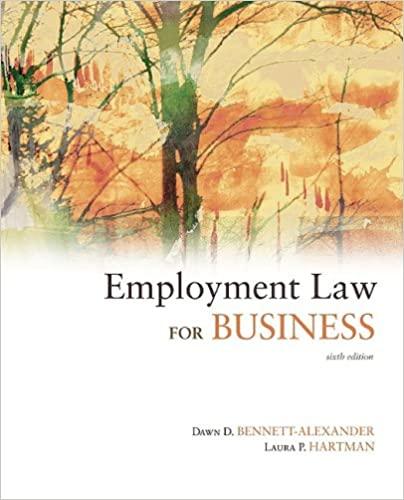Question
paraphrase and make it a sentence. Philippine Data Privacy Act of 2012 Business Process Management, particularly involving Health Information Technology, is an increasingly growing industry
paraphrase and make it a sentence.
Philippine Data Privacy Act of 2012
Business Process Management, particularly involving Health Information Technology, is an increasingly growing industry within the Philippine economy. With total IT expenditure reaching $4.4 Billion in 2016, the industry is forecasted to more than double itself by the year 2020. In addition, Filipinos utilize social media heavily, with a whopping 3.5 Million users on LinkedIn, 13 Million on Twitter, and 42.1 on Facebook (Wall, 2017).
Given the rapid evolution of the digital economy and heightened international data trading, the
Philippines has decided to strengthen its privacy and security protection by passing the Data Privacy Act of 2012, with an aim "to protect the fundamental human right of privacy, of communication while ensuring free flow of information to promote innovation and growth." (Republic Act. No. 10173, Ch. 1, Sec. 2).
The Data Privacy Act applies to individuals and legal entities that are in the business of processing personal information. The law applies extraterritorially, applying both to companies with offices in the Philippines, and even those located outside, but which use equipment based in the Philippines. It covers personal information of Filipino citizens regardless of the place of residence. T
The main principles that govern the approach for the Data Privacy act include:
Transparency;
Legitimacy of purpose; and
Proportionality.
Consent is one of the major elements highly-valued by the Data Privacy Act. The act provides that consent must be documented and given prior to the collection of all forms of personal data, and the collection must be declared, specified, and for a legitimate purpose.
Furthermore, the subject must be notified about the purpose and extent of data processing, with details specifying the need for automated processing, profiling, direct marketing, or sharing. These factors ensure that consent is freely-given, specific, and informed.
However, an exception to the requirement of consent is allowed in cases of contractual agreements where processing is essential to pursue the legitimate interests of the parties, except when overridden by fundamental rights and freedom. Such is also the case in responding to national emergencies.
Processing of sensitive and personal information is also forbidden, except in particular circumstances enumerated below. The Data Privacy Act describes sensitive personal information as those being:
About an individual's race, ethnic origin, marital status, age, color, and religious, philosophical or political affiliations;
About an individual's health, education, genetic or sexual life of a person, or to any proceeding or any offense committed or alleged to have committed;
Issued by government agencies "peculiar" (unique) to an individual, such as social security number;
Marked as classified by executive order or act of Congress.
The exceptions are:
Consent of the data subject;
Pursuant to law that does not require consent;
Necessity to protect life and health of a person;
Necessity for medical treatment;
Necessity to protect the lawful rights of data subjects in court proceedings, legal proceedings, or regulation.
The provisions of the law necessitate covered entities to create privacy and security program to improve the collection of data, limit processing to legitimate purposes, manage access, and implement data retention procedures.
Penalties
The act provides for different penalties for varying violations, majority of
which include imprisonment. These violations include:
a.Unauthorized processing
b.Processing for unauthorized purposes
c.Negligent access
d.Improper disposal
e.Unauthorized access or intentional breach
f.Concealment of breach involving sensitive personal information
g.Unauthorized disclosure; and
h.Malicious disclosure.
i.Any combination or series of acts enumerated above shall make the person subject to imprisonment ranging from three (3) years to
six (6) years, and a fine of not less than One million pesos (Php1,000,000.00) but not more than Five million pesos
(Php5,000,000.00) (Republic Act. No. 10173, Ch. 8, Sec. 33).
Step by Step Solution
There are 3 Steps involved in it
Step: 1

Get Instant Access to Expert-Tailored Solutions
See step-by-step solutions with expert insights and AI powered tools for academic success
Step: 2

Step: 3

Ace Your Homework with AI
Get the answers you need in no time with our AI-driven, step-by-step assistance
Get Started


